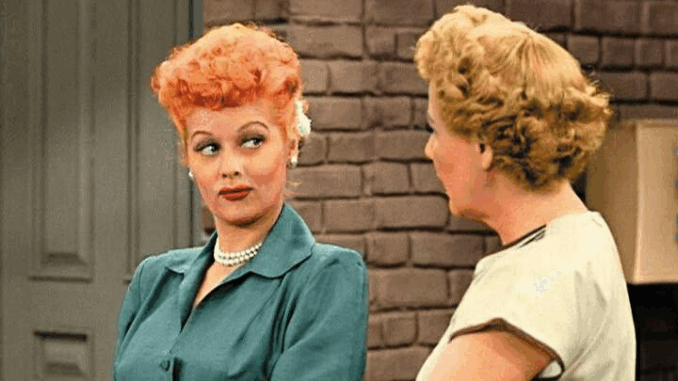
When I Love Lucy premiered in 1951, it wasn’t just another sitcom—it was a groundbreaking show that transformed television and continues to influence the medium to this day. From pioneering production techniques to breaking social barriers, the legacy of I Love Lucy is woven into the very fabric of TV history. But why does it still matter now, more than 70 years later? Let’s dive into how this beloved series changed television forever and why its impact remains relevant today.
1. Pioneering Production Innovations
One of the most significant ways I Love Lucy revolutionized television was through its innovative production methods. Lucille Ball and her husband Desi Arnaz were trailblazers in filming the show in front of a live studio audience using a multi-camera setup.
At a time when most shows were broadcast live or filmed as single-camera productions without live audiences, I Love Lucy introduced a new format that allowed for high-quality filming while still capturing authentic audience reactions. This multi-camera system, combined with filming on 35mm film, gave the show a polished look and allowed for reruns—something revolutionary at the time.
This approach has since become the standard for sitcoms, influencing countless shows like Friends, Seinfeld, and The Big Bang Theory.
2. Breaking Social and Cultural Barriers
Beyond technical innovation, I Love Lucy made cultural history by featuring one of the first interracial marriages on American television. Lucille Ball, a white American actress, starred opposite Desi Arnaz, a Cuban-American actor, playing a married couple—a bold move during a period of racial tension and segregation in the U.S.
The show subtly challenged social norms, portraying Ricky Ricardo as a charismatic, successful Latino bandleader while celebrating the couple’s love and cultural differences with warmth and humor. This representation helped open doors for more diverse casting and storytelling in television.
3. Empowering Women in Entertainment
Lucille Ball was not just the star of the show; she was also a pioneering producer and businesswoman. As one of the first female executives in television, Ball co-founded Desilu Productions, which produced I Love Lucy and later many other influential shows including Star Trek and Mission: Impossible.
Her dual role on-screen and behind the scenes set a new precedent, demonstrating that women could lead creatively and commercially in a male-dominated industry. Ball’s success paved the way for future generations of women in Hollywood.
4. Setting the Template for the Modern Sitcom
I Love Lucy set the template for the sitcom format: a blend of situational comedy, recurring characters, and episodic storytelling with a live audience laugh track. Its emphasis on character-driven humor and physical comedy became hallmarks of the genre.
The show’s timeless humor, with its mix of slapstick, witty dialogue, and relatable domestic situations, created a blueprint that writers and producers still follow today.
5. Why I Love Lucy Matters in Today’s Media Landscape
In an era dominated by streaming, complex dramas, and fast-paced content, I Love Lucy reminds us of television’s roots: simple, heartfelt storytelling that connects people through laughter. Its enduring popularity on streaming platforms and in syndication shows that audiences continue to crave humor that is both accessible and clever.
Moreover, the show’s pioneering spirit encourages ongoing conversations about diversity, representation, and innovation in media.
Final Thoughts
I Love Lucy did more than entertain—it transformed television’s technical landscape, challenged societal norms, and empowered women in an industry that desperately needed it. Its legacy endures not only in reruns and cultural references but in the very DNA of modern television production and storytelling.
More than seven decades later, I Love Lucy still matters — because it reminds us that groundbreaking art, heartfelt laughter, and bold courage never go out of style.
